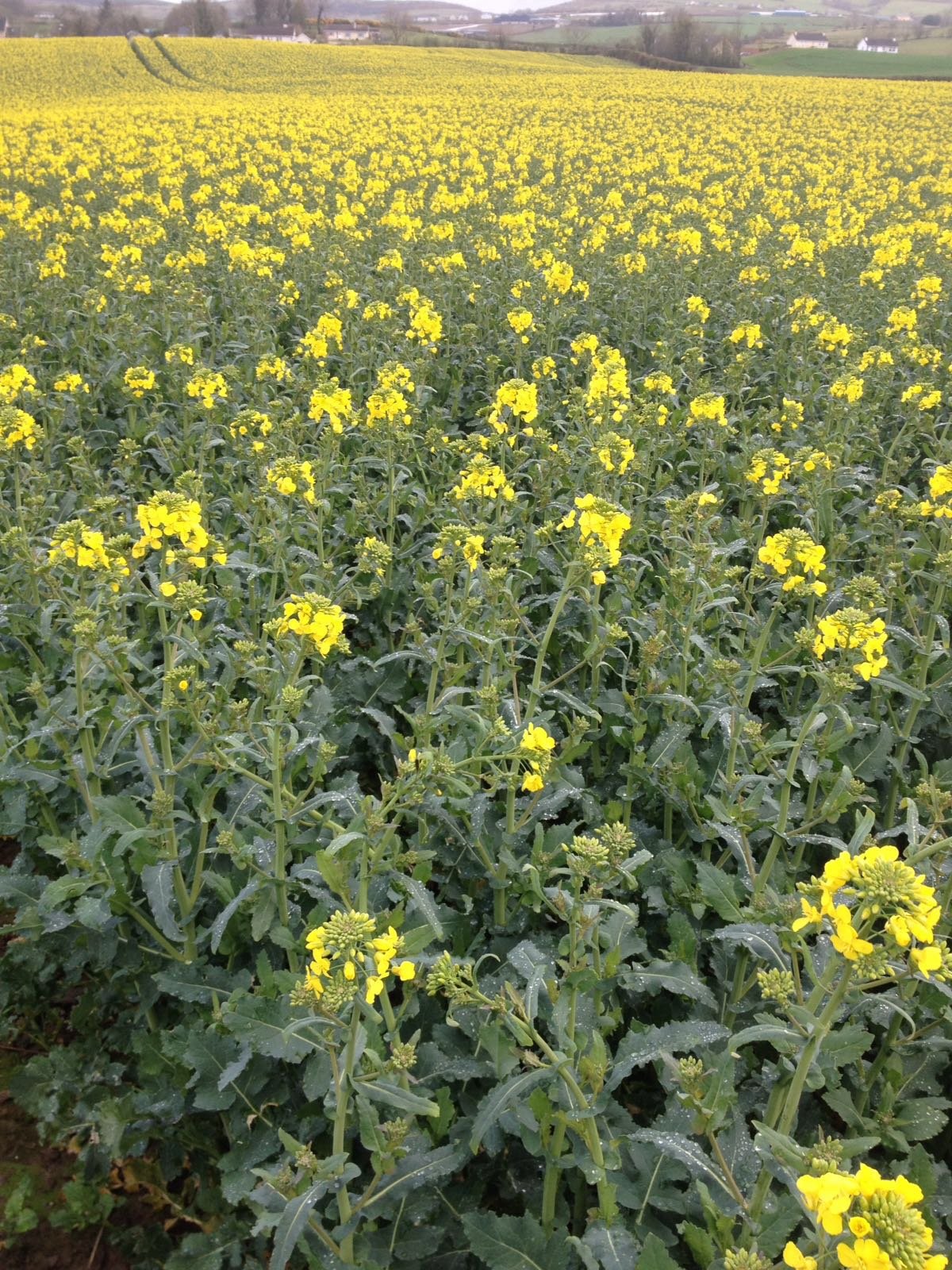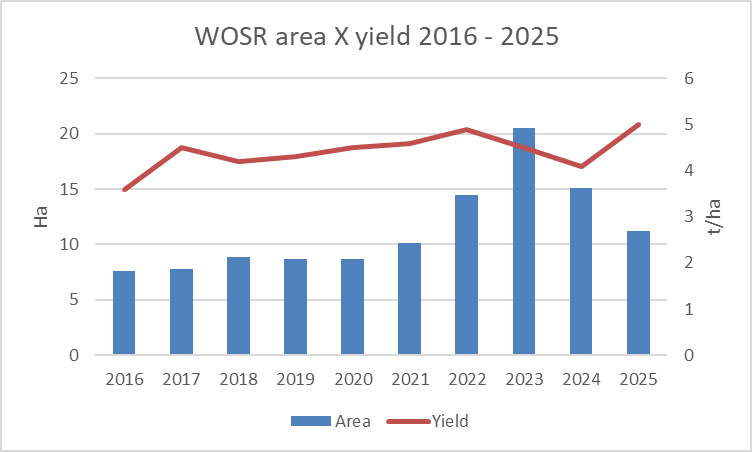
Teagasc Crop Report
Winter Oilseed Rape Reference Guide
Winter Oilseed Rape Reference Guide

To view the full report you must have an existing account with Teagasc ConnectEd.
Farmers sign in hereAlready have a ConnectEd account? Connected Client or Teagasc staff log in here
Winter Oilseed Rape
The 10 year average area of winter oilseed rape is 11,300 hectares, ranging from 7,600 ha in 2015 to 20,500 ha in 2024. This variation is influenced by autumn planting conditions and grain prices.
Yields depend on the growing season, with a target yield of 5. t/ha being achievable (2022). The 10-year average yield is 4.4 t/ha. Late sowing and pigeon grazing have been factors in low yielding years. Typically winter oilseed rape is sown after winter barley which increases the chances of getting the crop sown in August.

Oilseed rape offers the opportunity for growers to spread the risk and workload during critical parts of the season. It also offers the benefits of crop rotation, alternative weed control options, disease control and potentially increased yields in the following cereals.
Oilseed rape acts as a break crop from the Take-all fungus which adversely affects wheat. Yield of wheat sown after sowing rape can increase by 0.5-1.5 t/ha depending on the incidence of take all during the growing season.